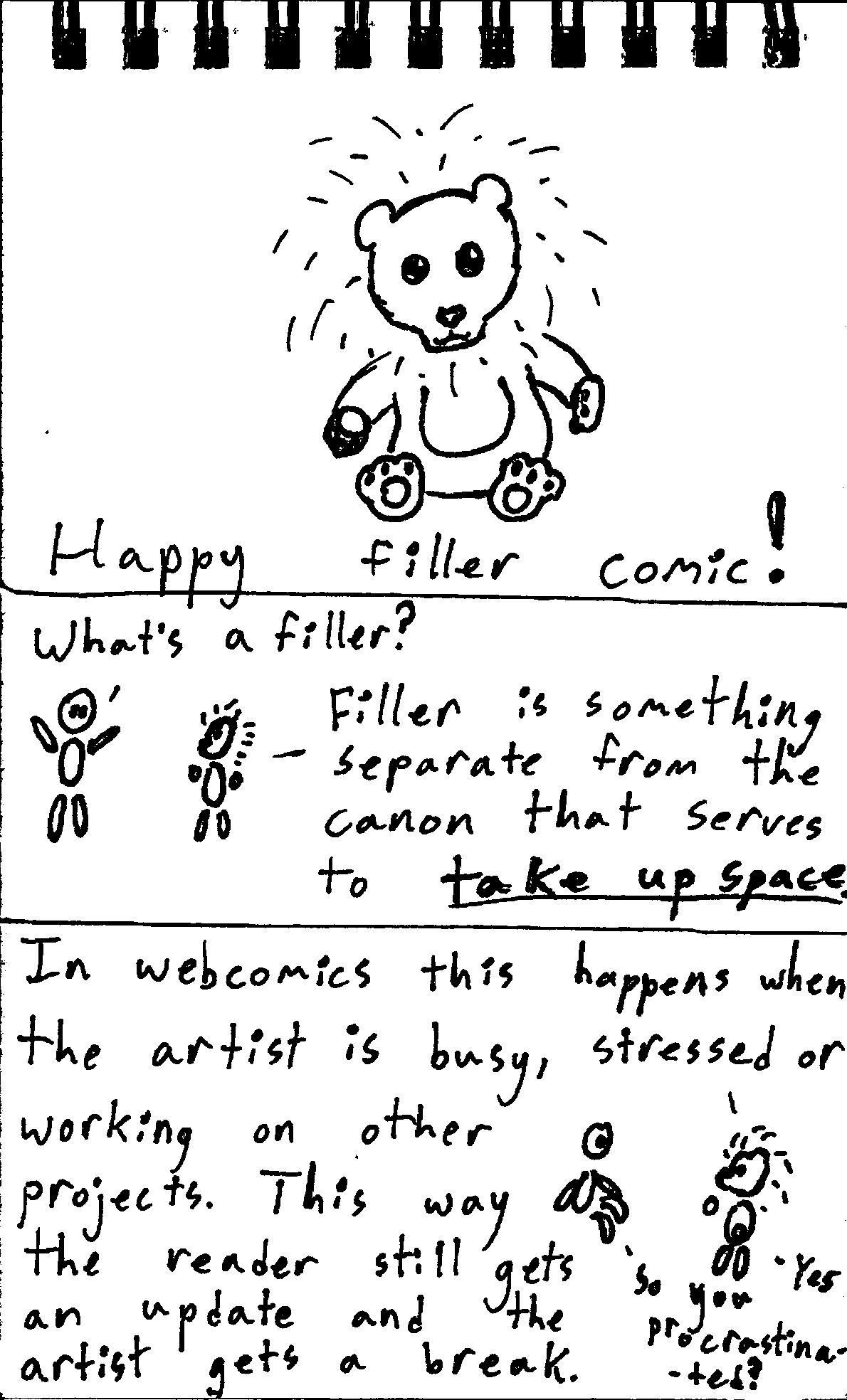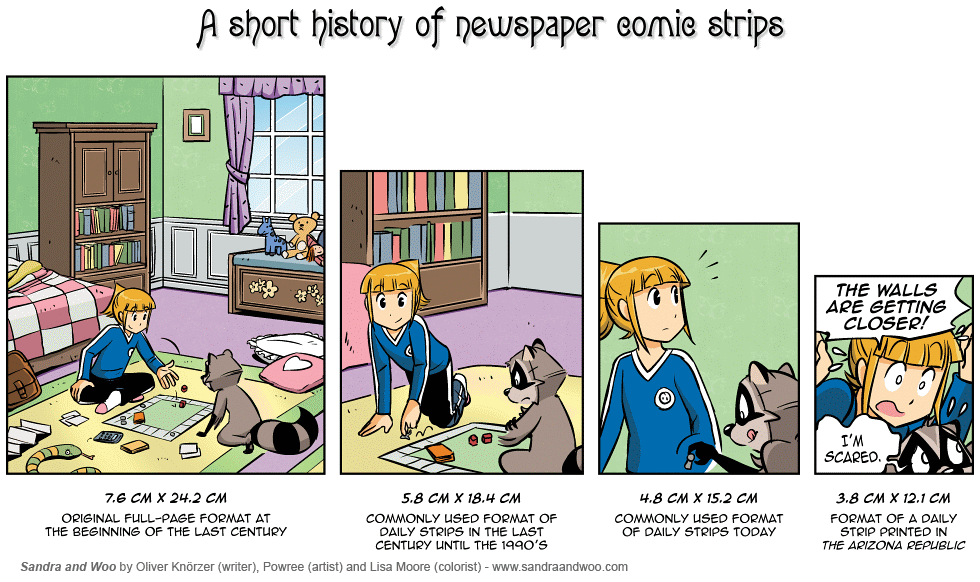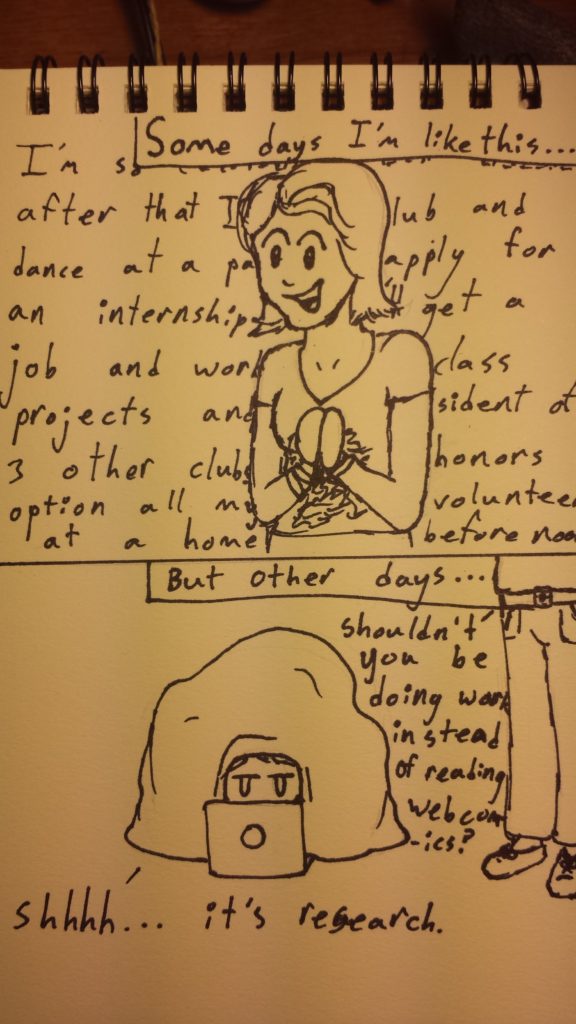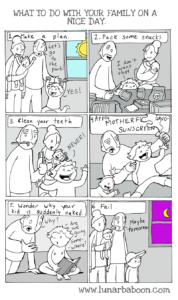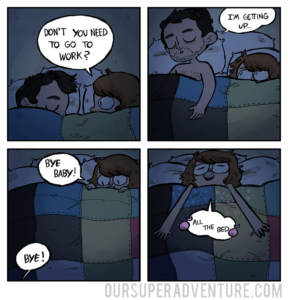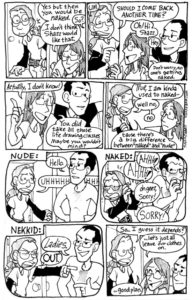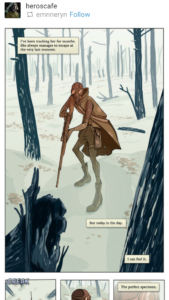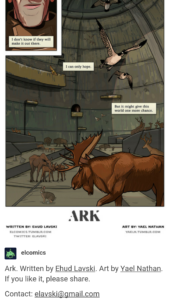What do you do when you wake up in the morning?
Get out of bed? Brush your teeth? Get dressed? Or do you check your phone? Or your Facebook? Or Twitter?
In our modern age, almost everyone has an account on some form of social media. It’s hard to get by without it – it’s how you connect with people, organize events, even how you find jobs. Everyone has to worry about their presence on social media, even webcomic artists.
With how much webcomics are seen on mediums other than their actual website (The Word on Webcomics), webcomic artists need to advertise on every possible form of social media to get attention. Since social media are inherently about sharing, they provide a uniquely effective way of getting your comic shared with the world.
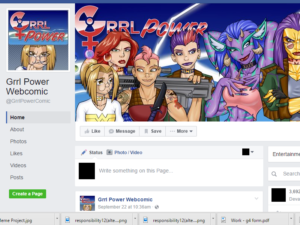
Source: Grrl Power Facebook
However, letting your comic loose on free sharing forums runs its share of risks. Most importantly, not being credited. It’s the most common thing to happen to producers of content on the internet. If you don’t have a watermark/signature (and sometimes even if you do, because people will crop it out), your hard work is thrown out to the world without you getting a single bit of attention or revenue from it. And there’s no real way to police it. Authors will put their website addresses on the comic, tell people not to share without crediting/permission, even try and threaten audiences with copyright infringement, but it still happens.
The most prominent example of this is the “X all the Things” meme, which originated from Allie Brosh’s blog Hyperbole and a Half, and specifically her comic “This is why I’ll never be an adult“.
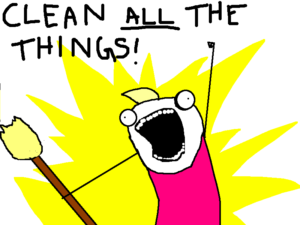
Source: Hyperbole and a Half
After this comic was published in 2010, the internet took hold of it and made it into a meme, one often repurposed to reference any number of fandoms or jokes. But throughout all these incarnations, no one thought to credit the original artist. In fact, if it weren’t for the fact that I read Hyperbole and a Half regularly, I would never have known that’s where it came from.
So even though social media of every form provides webcomics a great avenue of advertisement, it’s also often where authorship goes to die. Unless an artist is able to carefully police everywhere their content is shared and reproduced (on the Internet? I’d be impressed), they are in danger of having their content stolen, plagiarized, or just used without credit.
There are a lot of benefits to having the internet be free-use and open to everyone, there’s so much we can learn and see and use. But it also gives people almost open license to take the content they see and exploit it however they like. But before you worry too much, there are laws about Copyright on the Internet.
